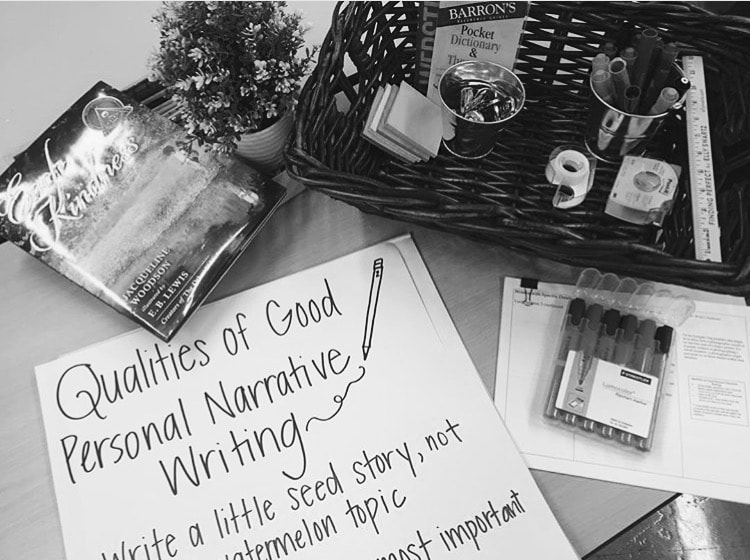|
My journey with workshop has been a long one, and one that I continue to pursue. A few years ago, when I suddenly became very interested in learning to be a better teacher, I started reading more professional books (on my own), blogs and online articles. I started listening to teacher experts and what they said about how they spent their reading and writing time.
I started to notice a trend, that almost all of these top literacy people, people whom I knew I could trust, were all using Workshop. This made me think that if they all felt like it was the best way to present reading and writing to their kids, who was I to do or say otherwise? I jumped right in and decided to try it out for myself. I get personal messages DAILY asking me for more information about Workshop. In this post I will lay out some resources for teachers looking to learn more about the Workshop format and the logistics of implementation. This is by no means an end all be all, just a list of things that have helped me along the way. Reading Workshop
Writing Workshop
I hope this post helps you get started with Workshop. My learning has come a long way over the past few years, but I can honestly say that I don't need a "program" to teach reading and writing. Now that I know about the layout of Workshop and I have some key ideas under my belt, I feel more comfortable with switching things up and trying new things. A lot of my learning this summer has been surrounded by inquiry, and my next goal is to continue to get a handle on reading and writing workshop, while including more inquiry and space for student wonderings in the units. The two complement each other and I am excited to see how they come together. Disclaimer: I do not level my classroom library, my kids do not know their reading levels, my kids do not use the homework or reading logs in the unit of study. This is where my Nancie Atwell, Donalyn Miller and Donald Graves training comes into play. Even though some of these resources suggest those things, I will never do them. I believe it is a basic right for my kids to have full choice when it comes to reading and writing. I also believe that for me to help them become better readers, writers and thinkers that I cannot be the one placing labels on books that tell them where they go. I work to help them develop the strategies they need to find books and find writing inspiration outside of the walls of our classroom. Bottom line: This way of teaching does not require "stuff." It requires a shift in thinking, and the willingness to provide many books, a lot of time to practice and a skilled coach who leans into kids as they work. If you have any questions or recommendations, please share below!
11 Comments
Jeannette Haskins
8/10/2017 04:12:47 pm
And if you are working with secondary students, ideas and works from Penny Kittle and Kelly Gallagher are also essential.
Reply
Stacey
9/19/2017 10:09:24 am
Completely agreed. Great suggestions!
Reply
Stacey
9/19/2017 10:10:29 am
Molly,
Reply
Amanda
8/19/2017 07:57:48 pm
This is great. I am thankful that I had a dynamic mentor in college that is a champion of literacy. We never learned anything except workshop, which was fantastic, and something I am incredibly thankful for. One area I have always felt less confident in is word work/word study. Can you point me towards any resources for authentic word study? Thanks for your help!
Reply
Stacey
9/19/2017 10:13:44 am
Amanda,
Reply
Ann
10/6/2017 12:10:56 pm
We are about to implement the Lucy Calkins Units of Study at my school and are trying to figure out how to make sure we are covering all of our TEKS. I know Heinemann has a resource that sort of says which Units cover which TEKS. Do you know of another resource? Thank you so much! :)
Reply
10/24/2017 10:53:38 am
I'm poking around on Stacey's site (Stacey, thank you for the wonderful links over to us at Heinemann!) and found your question. Maybe I can help.
Reply
Stacey
6/19/2018 06:19:07 am
Thank you, Erik! I appreciate the support here. Heinemann has been tremendous when it comes to support with the units and all of my other learning.
Amanda
10/24/2017 07:33:49 am
Hi Stacey,
Reply
Stacey
6/19/2018 06:20:25 am
Hi Amanda,
Reply
Your comment will be posted after it is approved.
Leave a Reply. |

 RSS Feed
RSS Feed
